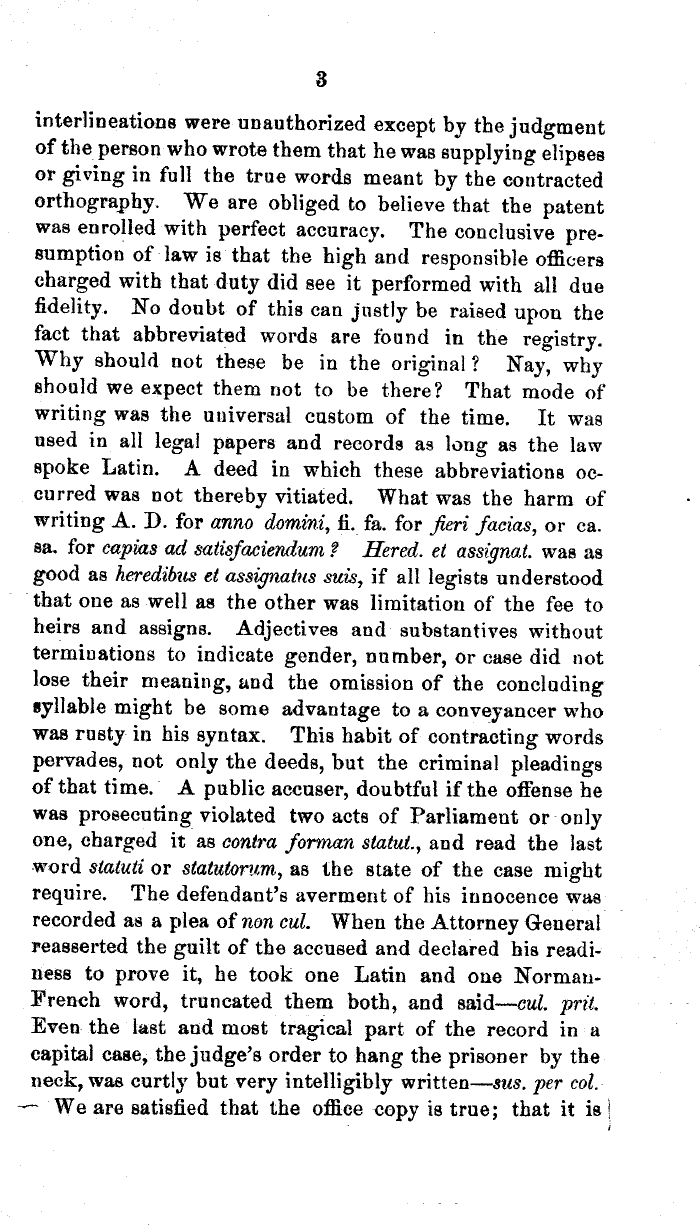| 3
interlineations were unauthorized except by the judgment
of the person who wrote them that he was supplying elipses
or giving in full the true words meant by the contracted
orthography. We are obliged to believe that the patent
was enrolled with perfect accuracy. The conclusive pre
sumption of law is that the high and responsible officers
charged with that duty did see it performed with all due
fidelity. No doubt of this can justly be raised upon the
fact that abbreviated words are found in the registry.
Why should not these be in the original ? Nay, why
should we expect them not to be there? That mode of
writing was the universal custom of the time. It was
used in all legal papers and records as long as the law
spoke Latin. A deed in which these abbreviations oc
curred was not thereby vitiated. What was the harm of
writing A. D. for anno dominz, fi. fa. for fieri facias, or ca.
sa. for eapias ad satisfaeiendum ? Hered. et assignat. was as
good as heredibus et assignatus suis, if all legists understood
that one as well as the other was limitation of the fee to
heirs and assigns. Adjectives and substantives without
terminations to indicate gender, number, or case did not
lose their meaning, and the omission of the concluding
syllable might be some advantage to a conveyancer who
was rusty in his syntax. This habit of contracting words
pervades, not only the deeds, but the criminal pleadings
of that time. - A public accuser, doubtful if the offense he
was prosecuting violated two acts of Parliament or only
one, charged it as contra forman statut., and read the last
word statud or statutorum, as the state of the case might
require. The defendant's averment of his innocence was
recorded as a plea of non cut. When the Attorney General
reasserted the guilt of the accused and declared his readi
ness to prove it, be took one Latin and one Norman
French word, truncated them both, and said--cul. prit.
Even the last and most tragical part of the record in a
capital case, the judge's order to hang the prisoner by the
neck, was curtly but very intelligibly written-sus. per cot.
- We are satisfied that the office copy is true; that it is
|

